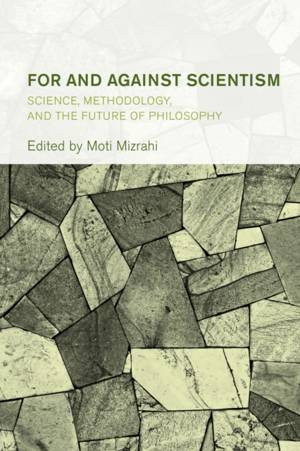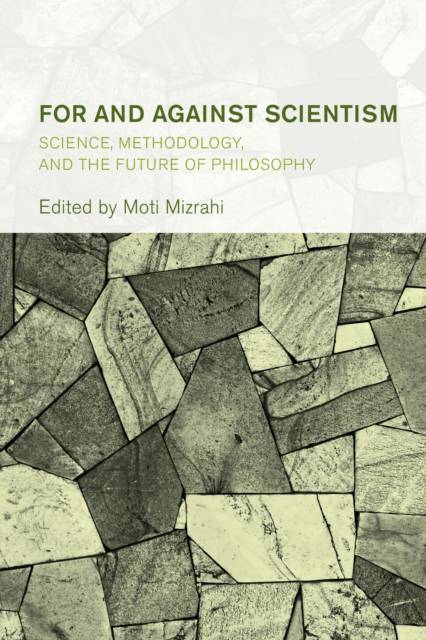
- Afhalen na 1 uur in een winkel met voorraad
- Gratis thuislevering in België vanaf € 30
- Ruim aanbod met 7 miljoen producten
- Afhalen na 1 uur in een winkel met voorraad
- Gratis thuislevering in België vanaf € 30
- Ruim aanbod met 7 miljoen producten
Zoeken
For and Against Scientism
Science, Methodology, and the Future of Philosophy
€ 203,95
+ 407 punten
Omschrijving
The term "scientism" is used in several ways. It is used to denote an epistemological thesis according to which science is the source of our knowledge about the world and ourselves. Relatedly, it is used to denote a methodological thesis according to which the methods of science are superior to the methods of non-scientific fields or areas of inquiry. It is also used to put forward a metaphysical thesis that what exists is what science says exists. In recent decades, the term "scientism" has acquired a derogatory meaning when it is used in defense of non-scientific ways of knowing. In particular, some philosophers level the charge of "scientism" against those (mostly scientists) who are dismissive of philosophy. Other philosophers, however, embrace scientism, or some variant thereof, and object to the pejorative use of the term. This book critically examines arguments for and against different varieties of scientism in order to answer the central question: Does scientism pose an existential threat to academic philosophy? Or should philosophy become more scientific?
Specificaties
Betrokkenen
- Uitgeverij:
Inhoud
- Aantal bladzijden:
- 206
- Taal:
- Engels
- Reeks:
Eigenschappen
- Productcode (EAN):
- 9781538163337
- Verschijningsdatum:
- 4/04/2022
- Uitvoering:
- Hardcover
- Formaat:
- Genaaid
- Afmetingen:
- 152 mm x 229 mm
- Gewicht:
- 471 g

Alleen bij Standaard Boekhandel
+ 407 punten op je klantenkaart van Standaard Boekhandel
Beoordelingen
We publiceren alleen reviews die voldoen aan de voorwaarden voor reviews. Bekijk onze voorwaarden voor reviews.







